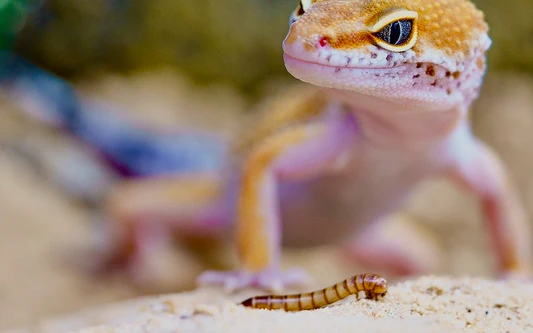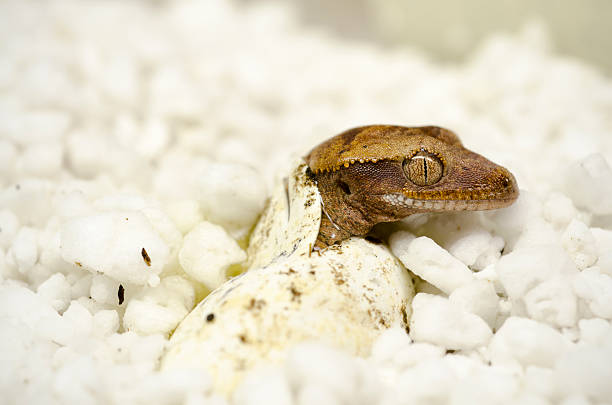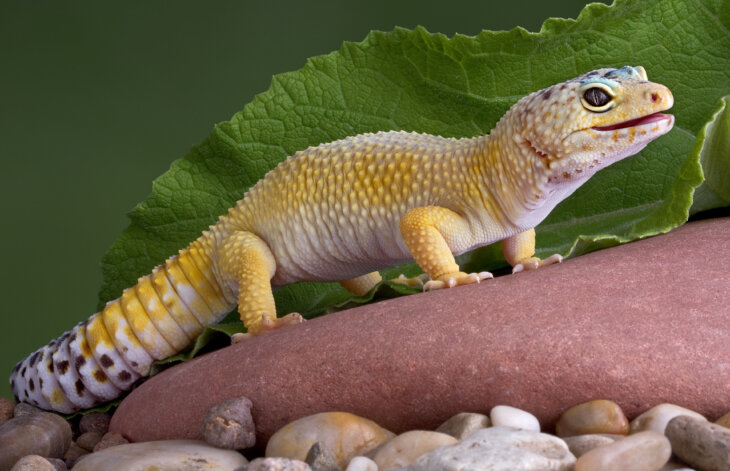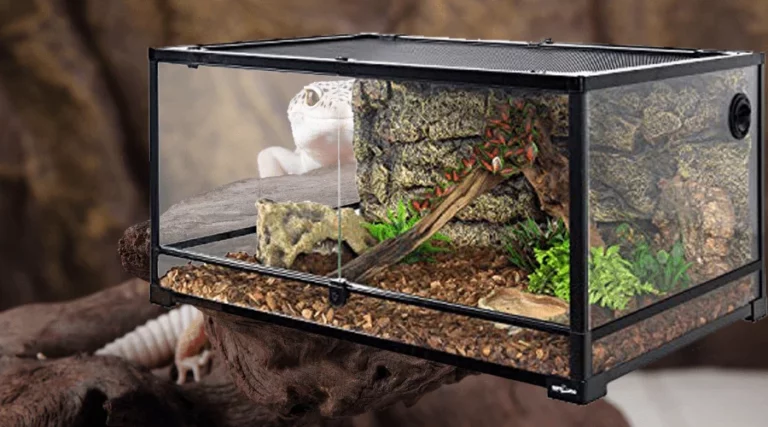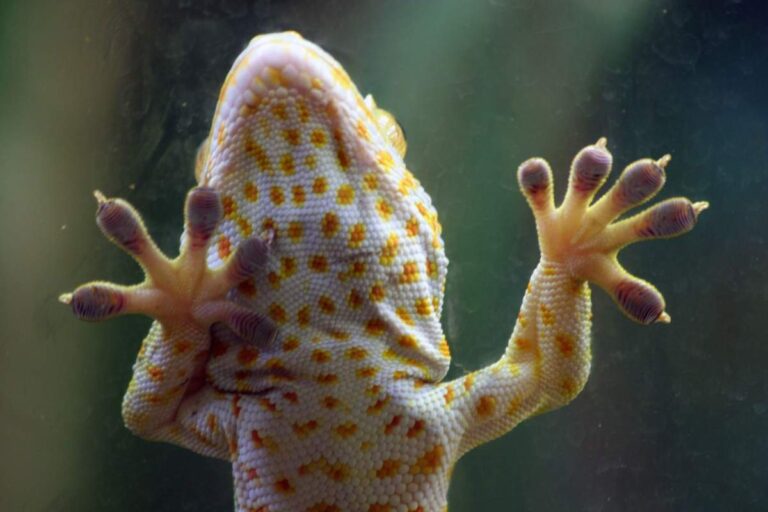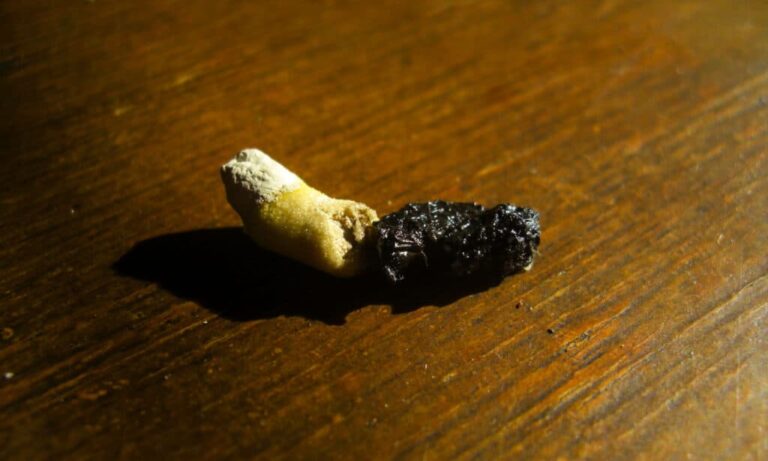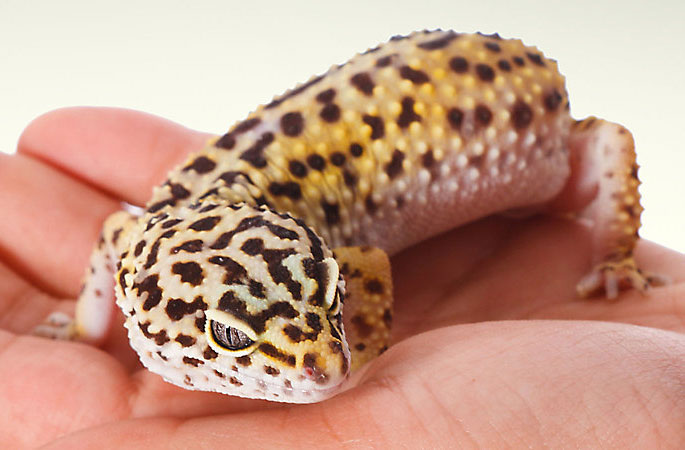Can Leopard Geckos Eat Earthworms? A Closer Look at Dining Preferences
As a passionate reptile enthusiast, I’ve always enjoyed observing the unique tastes and dietary quirks of my leopard geckos. These little creatures have a penchant for exploring a variety of insects and worms, making each feeding session an intriguing experience.
One day, while researching the ideal nutrition for my pet, I stumbled upon a question that had been on my mind for a while: Can leopard geckos eat earthworms?
It was a query born from a desire to diversify their diet and provide them with the best possible nutrition. So, I embarked on a quest to uncover the truth behind this mysterious menu item.
I found that Yes, Earthworms can be given to leopard geckos occasionally, but they’re not the best food choice. They’re about 83.6% moisture, so they aren’t as ideal as the live insects typically fed to leopard geckos.
So, let’s embark on this adventure together to discover if earthworms make the cut on the gecko menu.
How Often Can Leopard Geckos Eat Earthworms?
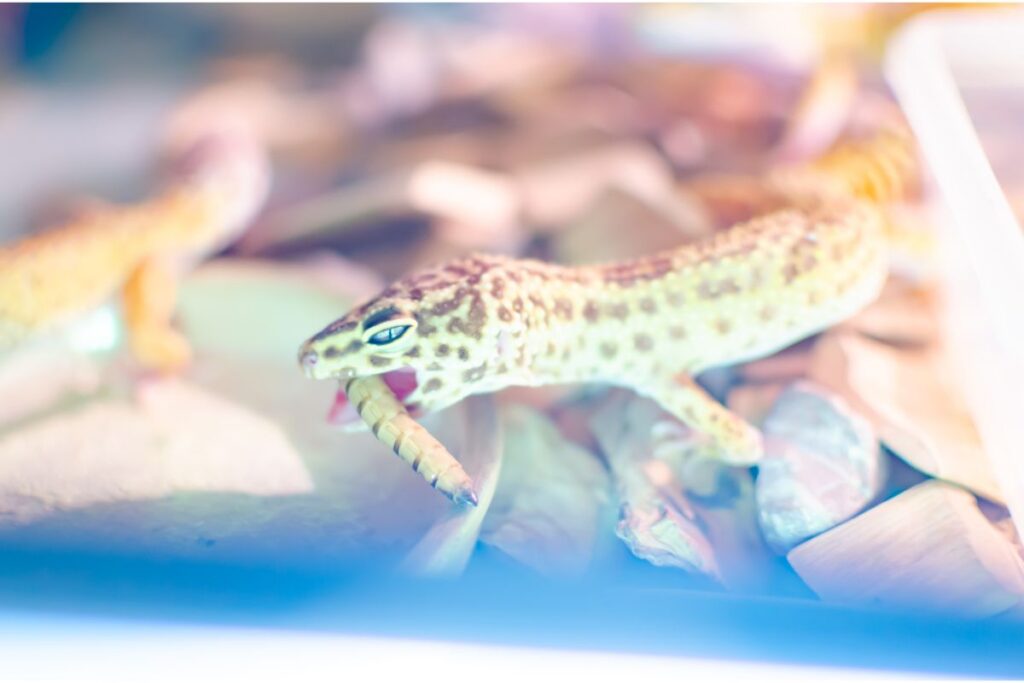
To keep your leopard gecko healthy, it’s important to mix up their insect diet. Don’t always feed them the same thing, like live crickets. Earthworms should be an occasional treat, not a regular meal. Stick to the insects you can find at your local pet store.
Also, a good diet for your gecko is about 25% crickets or roaches, 25% superworms, and the rest can be occasional snacks like hornworms, mealworms, or silkworms.
Remember to dust the insects with calcium and D3 supplements because the insects from pet stores might not have enough of these nutrients. These insects are usually fed for fast growth, unlike wild insects that eat more nutritious foods. Feeder insects from companies like Timberline, a top producer, are safe because they’re used for livestock and are free from parasites and harmful bacteria.
Nutritional Composition of earthworms
| Nutrient | Percentage or mg/kg |
| Moisture | 83.6% |
| Crude Protein | 10.5% |
| Fat | 1.6% |
| Ash | 0.6% |
| Calcium | 444 mg/kg |
| Phosphorus | 1590 mg/kg |
| Magnesium | 136 mg/kg |
Earthworms have a fascinating feature known as the clitellum, which appears as a distinctive “collar” when you observe them crawling on the ground. This remarkable part of their anatomy serves multiple purposes. It secretes a slimy substance, which plays a crucial role in shielding and safeguarding their eggs.
Furthermore, they produce mucus that serves as a natural skin moisturizer. This mucus is not only beneficial for their skin but also aids in their movement and assists in respiration.
However, it’s important to note that earthworms, while interesting in their functions, are not particularly rich in nutrients.
In fact, They consist of a high moisture content, accounting for approximately 83% of their composition, as we can see in the table. This moisture content might not make them an ideal dietary choice for geckos due to their limited nutritional density.
Additionally, this creature has an imbalanced calcium-to-phosphorus ratio, making them less than ideal for leopard geckos’ nutritional needs So, this can be a reason not to offer earthworms to them.
Feeding your pet earthworms is okay, but don’t grab them from your backyard or the wild. Those worms might have come into contact with chemicals or heavy metals that can harm your reptile.
Also, keep in mind that wild bugs eat a lot of different things, and some of that stuff could carry parasites, bacteria, mold, and other things that aren’t good for your pet. So, it’s safer to go with store-bought ones.
Variety in a Leopard Gecko’s Diet
Here’s a curated list of alternative insects and worms, along with their advantages for your pet’s well-being:
Leopard geckos thrive on crickets as food. As reptiles prefer crickets, you can get these at practically any large pet store.
Before feeding the insects to your gecko, you must gut load them. It is a method that enables you to feed your reptile the greatest amount of nutrients possible while they are eating. Giving the crickets cricket food or even a chunk of potato or oats will do this.
Dubia Roaches: These roaches are packed with fat, protein, carbohydrates, minerals, and water, making them a tasty and nutritious treat for your Leo. They’re not adept climbers or fliers (females don’t even have wings), and they’re easy for your gecko to chew and digest.
Waxworms: Leopard Geckos adore waxworms, but it’s important to limit their consumption due to these worms’ high-fat content, which can lead to weight issues.
Super Worms: Easy to breed and with a decent shelf life, superworms are protein-rich and make an excellent occasional treat. Just be cautious not to overfeed them due to their high-fat content.
Phoenix Worms: Low in fat and high in protein, Phoenix worms are a great choice for Leos. Their active movement adds extra excitement to mealtime.
Silkworms: Rich in minerals like potassium, calcium, and phosphorus, with a moderate fat content, silkworms are a safe and nutritious option for your pet’s health.
Horned Worms: These worms are readily available and offer high nutrient value, making them a suitable addition to your pet’s daily diet.
Mealworms: Affordable and long-lasting, mealworms are a convenient choice for Leopard Geckos. However, they are high in fat, so be mindful of feeding them in excess, as it can lead to weight gain. Additionally, they have a high calcium-phosphorus ratio, which may not be ideal for Leos.
What are the key considerations for providing water to a leopard gecko?
Ensuring your leopard gecko’s hydration is a crucial aspect of their care. When it comes to their water source, there are some important considerations to keep in mind. It’s wise to use shallow water bowls because if an insect happens to fall into a deep bowl, it could not only waste the insect but also compromise the cleanliness of the water.
In addition, Daily inspection of the water bowl is essential. This routine check ensures that the water remains clean and safe for your gecko to drink. Interestingly, some leopard geckos may use the water not just for drinking but also for cooling off.
In such cases, it’s essential to replace the water promptly and ensure that the cool area in your gecko’s habitat is appropriately maintained. This not only prevents bacterial growth but also helps maintain the right balance of moisture in the tank.
Why You Should Feed Earthworms To Your Leopard Gecko
Resilience Against Parasites:
Earthworms, despite their soil-dwelling nature, generally harbor few parasites. Their remarkable ability to resist various parasites is a notable characteristic. Offering them as a snack to your gecko can be an excellent choice, especially if your reptile enjoys them.
Ease of Digestion:
They are exceptionally easy for reptiles to digest due to their low chitin content and soft exoskeleton. These qualities make earthworms suitable for leopard geckos of all ages. However, when collecting them, it’s crucial to avoid soil contaminated with animal waste or freshly fertilized soil, as ingesting such substances can pose risks to your pets.
Size Considerations:
Before offering earthworms to your pet, ensure that the worms are an appropriate size for your reptile. Additionally, keep in mind that not all Leo may accept it as part of their diet; sometimes, it comes down to your pet’s personal preference.
Low-Fat Content:
In contrast to butterworms and superworms, which have high-fat content, earthworms contain less than 2% natural fat. This low-fat characteristic makes it an excellent choice for owners seeking low-fat treats for their pets.
FAQs
Do Earthworms Carry Parasites?
Yes, Earthworms can carry parasites, so it’s essential to be cautious about their source and quality when considering them as a food source for your pet.
Can Leopard Geckos Eat Earthworms and Suffer Digestive Issues?
Yes, leopard geckos can eat earthworms, but overfeeding them can lead to digestive issues due to the worms’ high moisture content and calcium-phosphorus ratio.
Is It Okay For Baby Leopard Geckos To Eat Earthworms?
Yes, Baby leopard geckos can eat small, appropriately-sized earthworms as part of their diet, but moderation is key to ensure balanced nutrition.
Are Some Earthworms Healthier Than Others?
Yes, earthworms’ nutritional quality can vary based on their source and diet, so it’s advisable to choose healthy, well-raised earthworms if you plan to feed them to your gecko.
Is the Earthworm Poisonous?
No, Earthworms are not inherently poisonous to leopard geckos; however, their secretions and source soil can sometimes deter geckos from eating them, and caution is advised regarding their source and quality.
Final Words
In conclusion, when it comes to leopard geckos eating earthworms, it’s doable but not the best choice. They can be unappetizing due to their secretions, and they have too much moisture, the wrong nutrients, and a risk of parasites.
Some geckos won’t even like them. There are better food options for them that provide a healthier diet. So, it’s wiser to go with alternatives that suit their needs and keep them happy and healthy.

